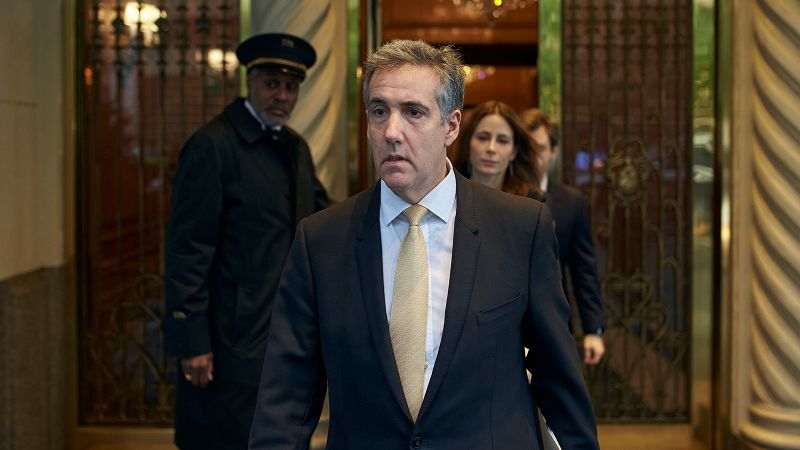Donald Trump had a victorious day in court as his former fixer, Michael Cohen, wobbled under cross-examination in Trump’s criminal trial. Cohen appeared inconsistent in his testimony about a call related to Trump’s hush money payment to Stormy Daniels, giving Trump’s attorneys an opening to sow doubt about Cohen’s credibility. Despite a challenging month in court, Trump left satisfied and optimistic about the outcome of the trial as the prosecution faced challenges in repairing the damage caused by Cohen’s testimony.
With the trial nearing its climax, Trump’s attorney, Todd Blanche, aimed to discredit Cohen’s credibility by highlighting his history of lying for Trump and his resentment towards the former president. Blanche focused on a crucial phone call between Cohen and Trump’s bodyguard, Keith Schiller, casting doubt on Cohen’s version of events regarding the Stormy Daniels matter. This exchange was significant as the case heavily relied on Cohen, a convicted felon with a history of dishonesty, raising the possibility of jurors questioning his testimony.
Despite Blanche’s success in raising doubts about Cohen’s credibility, some experts noted that it was just one small moment amidst a mountain of evidence potentially damaging for Trump. While the defense sought to capitalize on Cohen’s inconsistencies, legal analysts suggested that it would take more than one punch to discredit a witness. However, the defense strategically highlighted moments in Cohen’s testimony that could cast doubt on his reliability, ultimately aiming to create uncertainty among jurors regarding Cohen’s truthfulness.
Trump’s defense team also emphasized Cohen’s personal stake in the trial and his history of lying under oath, suggesting a motive for false testimony. This approach aimed to plant seeds of doubt among jurors about Cohen’s credibility, potentially leading to an inconclusive verdict. While Cohen’s struggles on the stand raised concerns for the prosecution, witnesses with credibility issues are commonly used in cases, signaling that the trial’s outcome was uncertain.
As the trial continued with both sides presenting their arguments, the defense capitalized on moments that could raise doubts about the prosecution’s case. Blanche’s cross-examination of Cohen strategically targeted his credibility, aiming to weaken the prosecution’s narrative. While the prosecution faced challenges in responding to the defense’s tactics, the trial highlighted the risks associated with Cohen’s pivotal role as a witness. Ultimately, the outcome of the trial remained uncertain as both sides presented their case before the jury.


